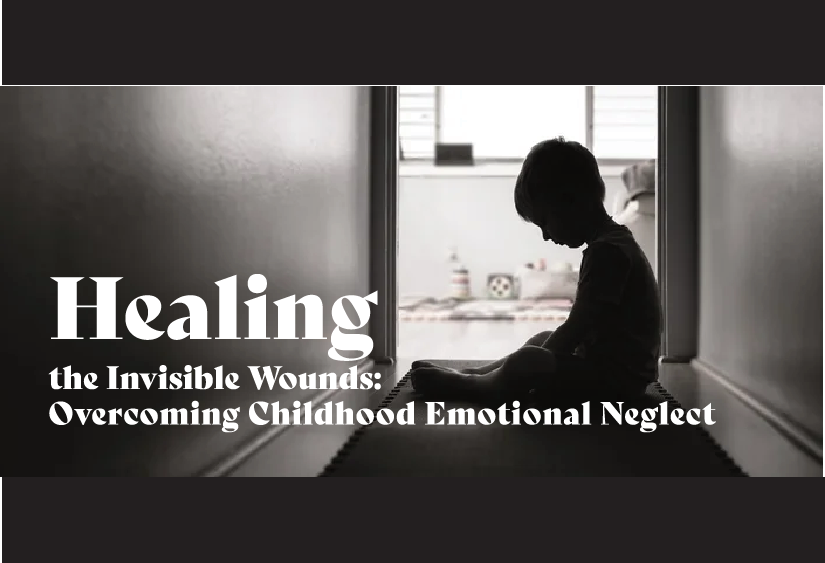
Article by
Emotional childhood neglect can have long-lasting impacts, manifesting in various aspects of an individual's life well into adulthood. This form of neglect occurs when caregivers fail to adequately respond to a child's emotional needs, leading to profound consequences.
If you grew up in an environment where your emotional needs were not met, it could significantly affect your relationships with others. You may find yourself becoming hyper-independent, having had to take care of your emotional needs or mature faster than your peers. This hyper-independence, while a survival mechanism, can lead to mental health challenges such as anxiety or depression.
Understanding Childhood Emotional Neglect
Childhood emotional neglect occurs when caregivers are emotionally absent from a child's life, failing to meet their basic emotional needs. This form of neglect can sometimes be classified as child abuse, although it is not always intentional. The effects of such neglect can be long-lasting and pervasive.
Signs of Emotional Neglect in Children
Depression Children experiencing emotional neglect often show signs of depression, especially if they lack positive peer support during adolescence. Depression is characterized by persistent low mood and a variety of symptoms affecting thoughts, feelings, and behaviors. In severe cases, children may exhibit suicidal thoughts.
Difficulties with Emotional Regulation: Emotional neglect can hinder a child's ability to regulate their emotions. Without recognition and validation of their feelings from caregivers, children may struggle to find healthy outlets for their emotions. Research indicates a link between childhood emotional neglect and difficulties in emotional regulation, suggesting that neglect can alter brain activity related to managing emotions.
Fear & Avoidance of Social Situations: Children who experience emotional neglect may develop a fear of others and avoid social interactions. They may struggle with trusting others to provide emotional safety, leading to insecure attachments and difficulties in social settings.
Low Self-Esteem: Emotional neglect can impair a child's ability to perceive their worth accurately. Studies have found a connection between child maltreatment, neglect, and low self-esteem, which can contribute to depressive symptoms.
Signs of emotional neglect in adults
The impact of childhood emotional neglect can extend into adulthood, affecting mental health and interpersonal relationships. Here are some signs that may indicate unresolved childhood emotional neglect in adults:
Feeling Empty or Numb: Adults who experienced emotional neglect as children might feel hollow, empty, or numb. This can be associated with depressive symptoms or stem from an inability to understand or express emotions.
Mental Health Challenges: The mental health issues that begin in childhood, such as depression and anxiety, can persist into adulthood. Research highlights that adults who faced childhood emotional neglect may also deal with eating disorders, suicidal thoughts, personality disorders, psychosis, and substance use problems.
Difficulty Relying on Others: If caregivers failed to provide a safe emotional space, individuals might struggle with trusting and relying on others. This can lead to hyper-independence, where handling everything alone becomes overwhelming and isolating.
Problems in Relationships: Childhood emotional neglect often leads to difficulties in forming and maintaining relationships. Research indicates that those who faced emotional abuse or neglect as children tend to have dysfunctional romantic relationships, feeling less safe, having trouble trusting partners, and being reluctant to enter into romantic relationships.
Coping with Childhood Emotional Neglect
Coping with the effects of childhood emotional neglect is essential for improving mental health and fostering healthy relationships. Here are some strategies to consider:
Seek Professional Support: A licensed mental health professional can provide guidance and therapy to help you cope with the emotional neglect experienced in childhood.
Recognise & Feel your Emotions: Learning to acknowledge and express your emotions is crucial. Mindfulness techniques can help you become more aware of your feelings.
Practice mindfulness: Engaging in mindfulness practices can aid in managing stress and improving emotional regulation.
Listen to your needs: Understand and articulate your needs to others. Setting healthy boundaries is a vital step in self-care.
Conclusion
Childhood emotional neglect is associated with various mental health issues and relational difficulties. Recognizing its impact and seeking coping strategies can help individuals overcome these challenges. If you're affected by childhood emotional neglect, consider using the FindCare tool to connect with a local mental health professional who can assist you in developing better coping strategies and improving your overall well-being.
 Monthly "Azeem English Magazine", launched in 2000, records the information about diverse fields like mental health, literature, research, science, and art. The magazine's objective is to impart social, cultural, and literary values to society.
Monthly "Azeem English Magazine", launched in 2000, records the information about diverse fields like mental health, literature, research, science, and art. The magazine's objective is to impart social, cultural, and literary values to society.
+92 51 88 93 092
First Floor, RAS Arcade, Eidhi Market, Street#124, G-13/4, Islamabad, Pakistan, 44000.